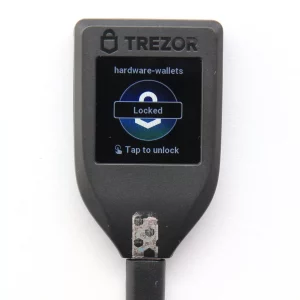Bitcoin, the world’s first decentralized digital currency, has changed the way we perceive and transfer value. At the heart of the Bitcoin ecosystem lies the concept of Bitcoin wallets, which are digital tools that allow you to store, send, and receive Bitcoin securely. These wallets come in various forms, ranging from software applications (cold wallets) to hardware devices.
The Lightning Network is a second layer built on top of Bitcoin network that facilitates faster and cheaper transactions. To interact with the Lightning Network, you’ll need a special type of wallet – a Lightning wallet. A Lightning wallet is a type of Bitcoin wallet that integrates Lightning Network functionality, allowing you to send and receive Bitcoin via the Lightning Network. These wallets enable instant and low-cost transactions, making them ideal for everyday use cases such as retail payments, online purchases, micropayments, and remittances.
Benefits of Bitcoin Lightning Wallets
One of the key benefits of Lightning wallets is their ability to facilitate fast and inexpensive transactions. By leveraging the Lightning Network, you can send and receive Bitcoin instantly with minimal fees, making micropayments and recurring transactions more practical. Additionally, Lightning wallets offer enhanced privacy and scalability compared to on-chain transactions, as most transactions occur off-chain, reducing congestion on the main Bitcoin blockchain.
Cons of Lightning Wallets
While Lightning wallets offer numerous advantages, they also come with some drawbacks. One of the main concerns is the complexity of setting up and managing Lightning channels, which may deter less technically savvy users. Additionally, Lightning Network technology is still in its early stages of development, and as such, it may be susceptible to bugs, security vulnerabilities, and network congestion.
The Lightning Network’s reliance on payment channels introduces some level of counterparty risk, as users must trust the nodes they connect to not engage in fraudulent behavior. The scalability of the Lightning Network remains a subject of debate, with some experts questioning its ability to handle the increasing transaction volume as adoption grows. Despite these challenges, ongoing research and development efforts aim to address these issues and further enhance the capabilities of the Lightning Network.
Find out: Bitcoin wallets vs Lightning wallets
How Bitcoin Lightning Wallets Work
Bitcoin Lightning wallets function by establishing payment channels between users, which allow them to conduct off-chain transactions. These payment channels are funded by locking Bitcoin funds in a multi-signature address, which can only be accessed by both parties involved in the channel. Once the channel is established, users can send and receive Bitcoin instantly by updating the channel’s balance through cryptographic signatures. When the channel is closed, the final balance is settled on the Bitcoin blockchain, and the funds are distributed accordingly.
List of Best Bitcoin Lightning Wallets
There’s a growing number of Lightning wallets. Here’s a list of some of the top Bitcoin Lightning wallets.
- Electrum
- BlueWallet
- Phoenix Wallet
- Wallet of Satoshi
- OneKey (hardware wallet)
- Exodus
- Muun (via submarine swap)
- Breez
- Strike
- Alby
- Swapee
Should You Use Lightning Wallets?
You should use a Lightning wallet if you frequently make small Bitcoin transactions and value speed and cost-effectiveness. The recent surge in ordinals, unique data inscriptions embedded into Bitcoin transactions, has significantly inflated transaction fees on the main Bitcoin network. This has further highlighted the crucial role of Lightning wallets in mitigating these rising costs and enabling faster, cheaper transactions. However, if you primarily deal with large, infrequent Bitcoin transactions, a traditional Bitcoin wallet might still be sufficient.
Looking ahead, the future of micropayments and wider Bitcoin adoption heavily relies on the success and widespread adoption of Lightning wallets. Their ability to facilitate fast, affordable, and scalable transactions paves the way for a more efficient and accessible Bitcoin ecosystem.
It’s essential to weigh the pros and cons of Lightning wallets and consider your specific use case before making a decision.



























